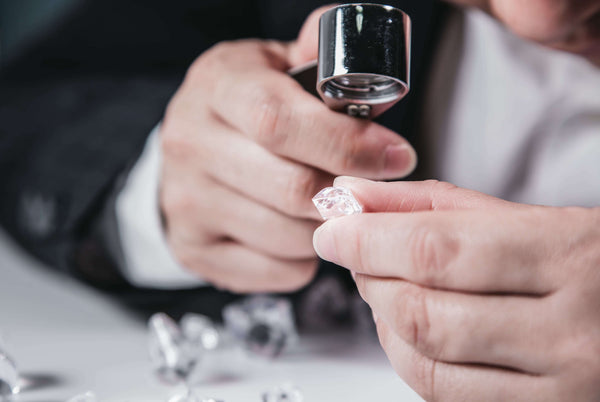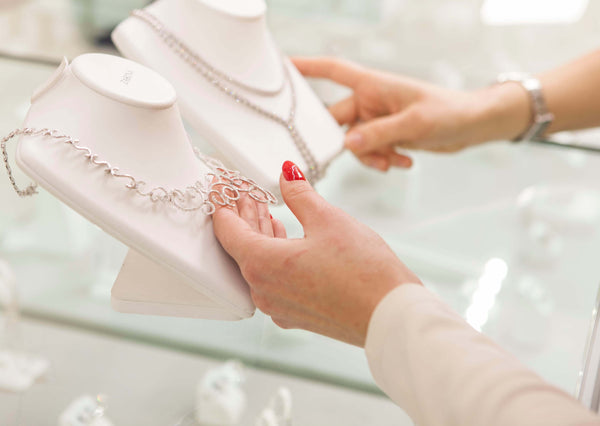
In the world of gemstones and jewelry, few acronyms carry as much weight and assurance as GIA. Standing for the Gemological Institute of America, GIA certification is a hallmark of quality, authenticity, and trustworthiness in gemstones. This article explores what GIA certified means, the importance of GIA certification in the gemstone industry, and how it serves as a beacon of quality assurance and authenticity for both consumers and professionals alike.
The Gemological Institute of America (GIA): A Brief Overview
Founded in 1931, the Gemological Institute of America (GIA) is a non-profit organization dedicated to the research, education, and standardization of gemstones. As the world’s foremost authority on diamonds, colored stones, and pearls, GIA’s mission is to ensure the public trust in gems and jewelry by upholding the highest standards of integrity, academics, science, and professionalism.
What Is GIA Certified?
When a gemstone is described as "GIA certified," it means that the gemstone has been analyzed and graded by GIA's team of expert gemologists. This certification process involves a comprehensive examination of the gemstone’s characteristics, such as its color, clarity, cut, and carat weight for diamonds, and additional factors for colored gemstones and pearls. The outcome of this analysis is a detailed report that verifies the gemstone's authenticity and quality.
The GIA Certification Process
The certification process begins when a gemstone is submitted to GIA’s laboratory. Using advanced equipment and rigorous methodologies, GIA gemologists examine the stone to determine its physical and optical properties. This includes assessing the 4Cs for diamonds (Cut, Color, Clarity, and Carat Weight) and other quality factors for colored stones and pearls. The process is objective and standardized, ensuring that each gemstone is evaluated according to the same criteria.
The Importance of GIA Certification
Authenticity Assurance
In an industry where synthetics, treatments, and imitations are not uncommon, a GIA certificate serves as a definitive assurance of a gemstone's authenticity. This is crucial for both buyers and sellers, providing peace of mind that the stone is natural and has been accurately represented.
Quality Verification
GIA certification also confirms the quality of a gemstone. By grading the gemstone against established criteria, GIA provides a neutral, third-party assessment of its characteristics and quality. This is invaluable for determining the stone's market value and ensuring that consumers are making informed purchasing decisions.
Standardization Across the Industry
GIA's grading standards have become the international benchmark for the industry. This standardization facilitates a common language among buyers, sellers, and appraisers, enabling transparent and fair transactions.
Consumer Confidence
For consumers, a GIA certificate is a symbol of trust and confidence. It assures them that they are investing in a piece of jewelry that has been scrutinized and authenticated by the world’s leading gemological authority.
GIA Certified in the Jewelry Industry
GIA certification is sought after in the jewelry industry for its rigorous standards and unbiased grading. Jewelers and retailers, by offering GIA-certified gemstones, underscore their commitment to quality and authenticity. This not only enhances their reputation but also builds consumer trust and loyalty.

The Role of GIA Certification in Value Determination
The value of a gemstone is significantly influenced by its quality attributes. GIA certification provides an accurate and detailed description of these qualities, which is essential for correctly pricing the stone. For insurance and appraisal purposes, a GIA certificate offers a reliable documentation of the gemstone's value.
Trabert Goldsmiths: Your Destination for GIA Certified Jewelry
At Trabert Goldsmiths, we understand the importance of quality, authenticity, and trust in the purchase of jewelry. That's why we are proud to carry a wide range of modern and vintage GIA certified jewelry. Our collection reflects our commitment to excellence and our dedication to providing our customers with pieces that they can cherish for a lifetime.
Located in the heart of the Bay Area at 2420 Fillmore Street, San Francisco CA 94115, Trabert Goldsmiths is a haven for those seeking the assurance and beauty of GIA certified gemstones. Whether you're looking for an engagement ring, a special gift, or a timeless piece to add to your collection, our expertly curated selection offers something for everyone.
Visit Us or Browse Our Collection Online
GIA certification represents the pinnacle of trust, quality, and assurance in the gemstone and jewelry industry. It not only validates the authenticity and quality of a gemstone but also provides consumers with confidence in their investment. At Trabert Goldsmiths, we are proud to support this standard of excellence by offering an extensive collection of modern and vintage GIA certified jewelry. We invite you to explore our selection and experience the peace of mind that comes with choosing GIA certified jewelry.
For those living in and around the Bay Area, we invite you to visit our store and discover the beauty and assurance of GIA certified jewelry firsthand. If you're unable to visit in person, our online collection offers the convenience of exploring our exquisite jewelry from the comfort of your home.
At Trabert Goldsmiths, we're more than just a jewelry store; we're a trusted partner in your journey to find the perfect piece of GIA certified jewelry. Whether in-store or online, we look forward to helping you discover the piece that speaks to your heart.
FAQs
What does it mean if a gemstone is not GIA certified?
If a gemstone is not GIA certified, it means it has not been analyzed and graded by the Gemological Institute of America. While it might still be of high quality, the lack of GIA certification means there's no third-party verification of its characteristics and value.
How can I verify the authenticity of a GIA certificate?
You can verify the authenticity of a GIA certificate by visiting the GIA website and entering the report number provided on the certificate. This allows you to access the official report and confirm that the details match those of the gemstone you are considering.
Is GIA certification necessary for all types of gemstones?
While GIA certification is not mandatory for all gemstones, it is highly recommended for valuable pieces such as diamonds, colored gemstones, and pearls to ensure their quality, authenticity, and value.
How much does GIA certification cost?
The cost of GIA certification varies depending on the size and type of the gemstone. It's a worthwhile investment for the assurance and peace of mind it provides regarding the gemstone's quality and authenticity.
Can a GIA certificate increase the value of a gemstone?
Yes, a GIA certificate can increase the value of a gemstone by providing a reliable, third-party assessment of its quality and characteristics, which is highly valued in the marketplace.
How long does it take to get a gemstone GIA certified?
The time it takes to get a gemstone GIA certified can vary, typically ranging from a few days to several weeks, depending on the type of gemstone and the current workload of the GIA laboratory.
Can a GIA certified gemstone lose its certification?
A GIA certified gemstone does not "lose" its certification, but if the gemstone is altered, damaged, or treated in any way after certification, the original GIA report may no longer accurately reflect its current condition.
Are there any alternatives to GIA certification?
Yes, there are other reputable gemological laboratories that offer gemstone grading and certification, such as the AGS (American Gem Society) and EGL (European Gemological Laboratory), but GIA is widely recognized as the industry standard.
